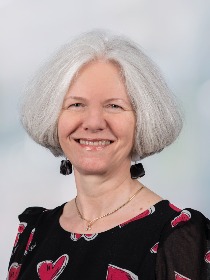
prof. dr. P.M.L.A. (Patricia) van den Bemt

Prof. Dr. P.M.L.A. (Patricia) van den Bemt is employed as a hospital pharmacist and professor in the department of Clinical Pharmacy and Pharmacology of UMCG Groningen. She also is a clinical pharmacologist and epidemiologist. As hospital pharmacist she is head of the section patient care and vice director of the department. As a professor she is leading a research line on Pharmaceutical Health Services Research.
Professor Patricia van den Bemt (UMCG) and Prof Eelko Hak (University Groningen) receive Interreg North-West Europe funding as partner in a large EU Consortium spanning seven countries in North-West Europe, investigating the prevention of medicine residues in water (PREWAPHARM).
These two founding members of the consortium will work together with TCNN and 30 partners, which include Obseq, Zorgbelang Groningen and the RIVM from the Netherlands, on sustainable strategies and technological solutions to reduce environmental damage caused by the use of medicines. This project with a total budget of 10 million euros emphasizes the power of international cooperation between these international partners and the innovative water and health clusters in the Northern Netherlands.
The PREWAPHARM (Prevention of Water Pollution by Pharmaceuticals) project is an international collaboration aiming to reduce the environmental impact of pharmaceutical waste in the North-West Europe region. The project focuses on innovative strategies to prevent pharmaceuticals from entering water systems, particularly through improved collection, disposal, and treatment processes.
Objectives:
The project’s overarching goal is to reduce the presence of pharmaceuticals in water by:
-
Creating a transnational strategy to serve as a policy framework and guidelines for local action plans, ensuring a supporting policy to reduce pharmaceuticals in water in the whole Northwest Europe region
-
Strengthening governance and collaboration across borders and sectors to establish harmonized frameworks for pharmaceutical pollution prevention in healthcare and water management.
-
Developing and piloting innovative upstream solutions to reduce pharmaceutical emissions at the source, including technical innovations in healthcare and water treatment systems.
-
Creating scalable models and toolkits for other regions and EU member states, ensuring the replicability of successful approaches and technologies.
-
Enhancing awareness and behavior change among healthcare professionals, pharmacists, patients and the general public through targeted communication and educational strategies.
These objectives align with the EU’s Zero Pollution Action Plan and the Water Framework Directive by focusing on source prevention, rather than solely relying on end-of-pipe solutions.
